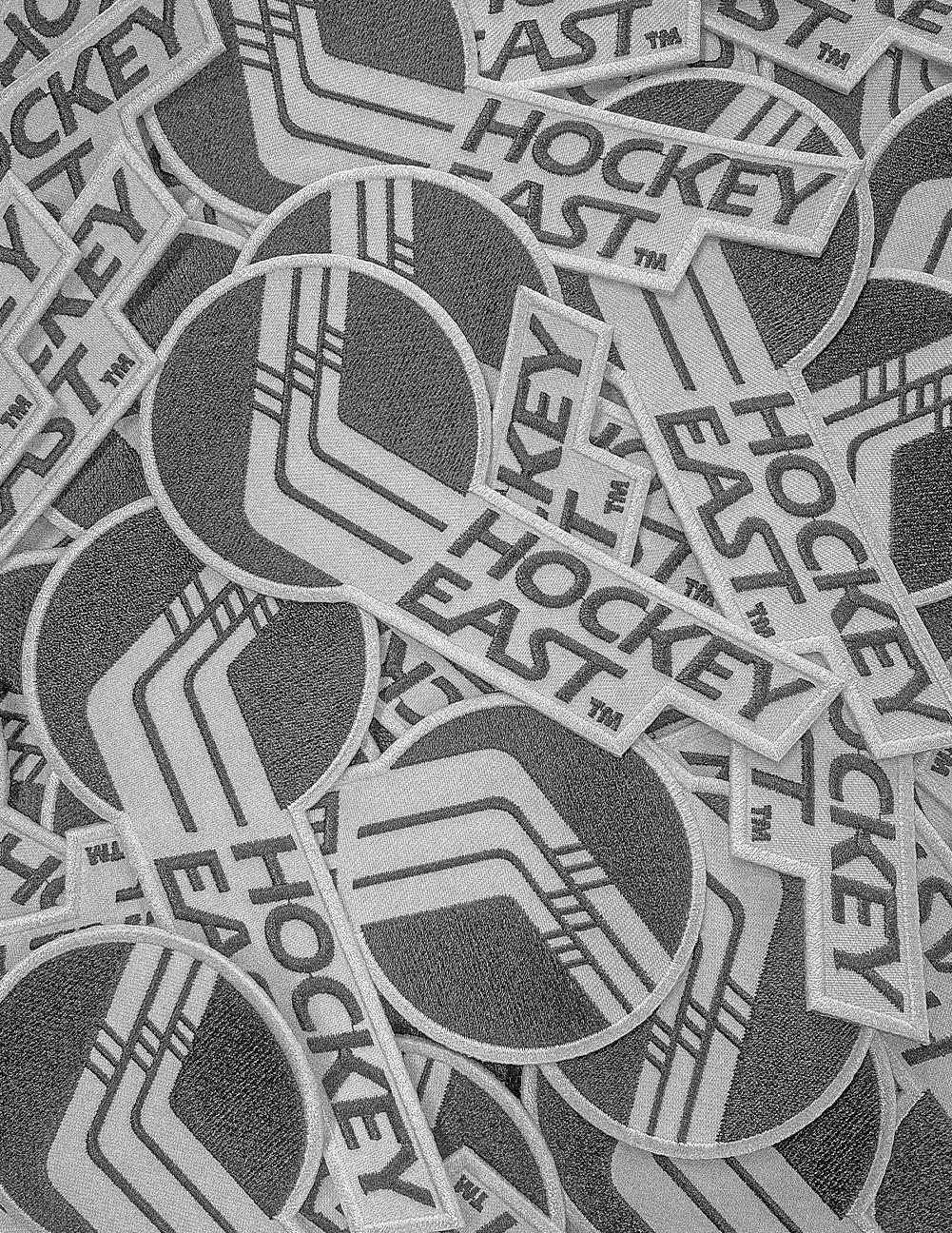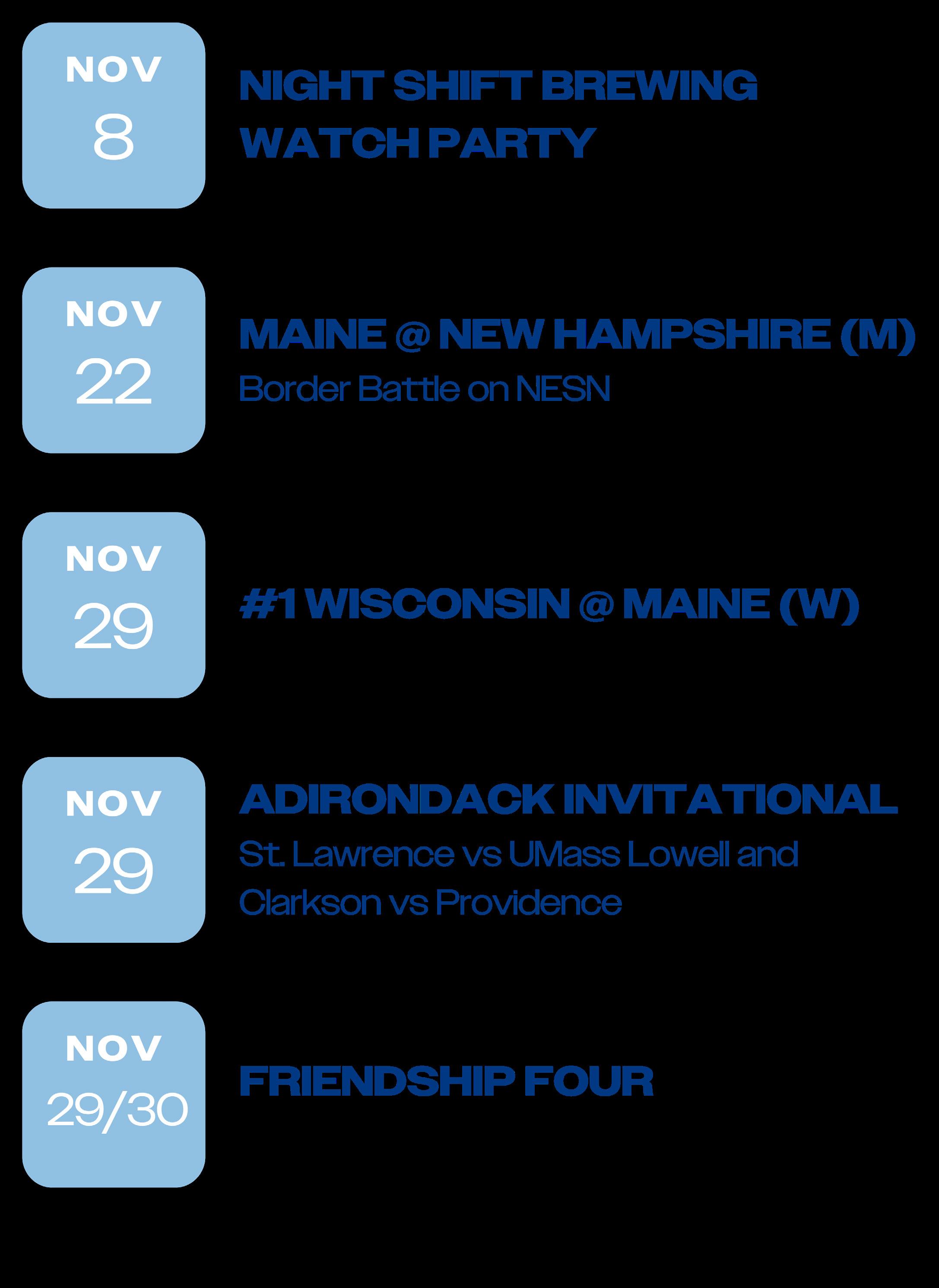












Welcome to the first issue of Hockey East Magazine - a new venture where we showcase the stories, achievements, and successes of our league’s athletes and teams. We are excited to introduce this comprehensive publication, created to deepen your connection to Hockey East and provide insights into the rich narrative of our history and programs.
Our aim is not only to keep fans informed, but to highlight the players, staff, and trends that shape our league. Each issue will have features spotlighting both men’s and women’s teams and giving you a front-row seat into the stories and successes of those who make Hockey East extraordinary. In doing so, we’ll create a lasting archive that captures the identity of our league while we aim to stay at the forefront of college hockey development.
Hockey East Magazine will deliver the latest in hockey news and stories in a format that is accessible and engaging for you, the reader. We’ll take you behind the scenes, exploring everything from player development and emerging trends, to the unique, untold stories of our athletes, coaches, and support staff. Within these pages, you’ll get a deeper look at the game you love - one we hope enriches your experience as a fan and invites you to celebrate the collective accomplishments of Hockey East.
Thank you for joining us on this journey. We look forward to starting a new tradition in storytelling with each issue, one that honors the heart of Hockey East and connects our community like never before.

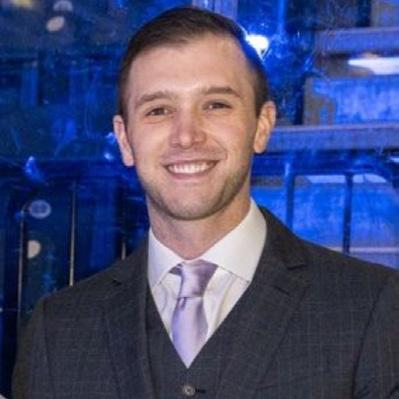

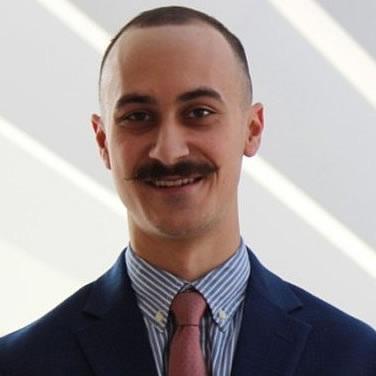

Steve Metcalf
Steve Metcalf Commissioner

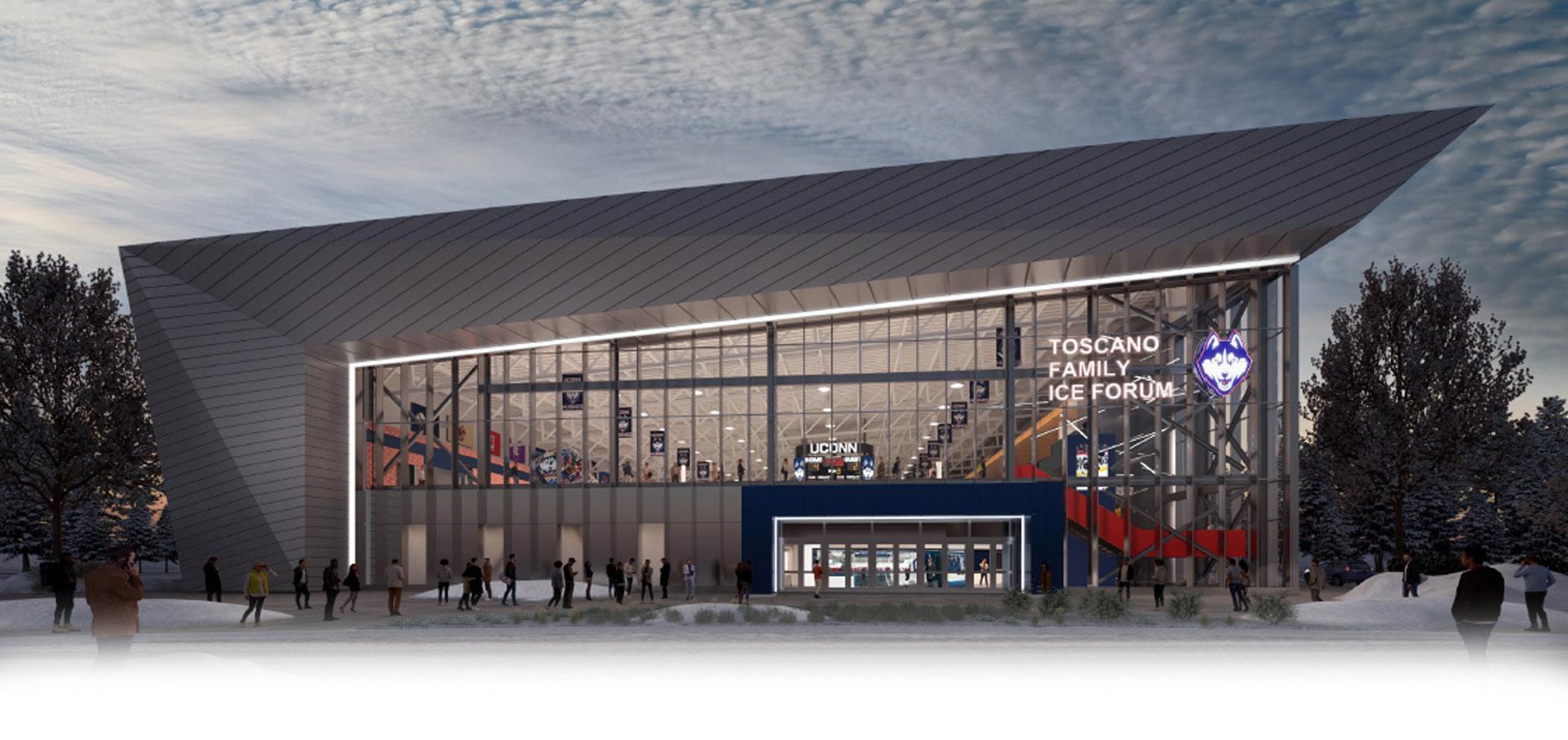
The 2025 Hockey East Women’s Championship Game will take place at UConn’s Toscano Family Ice Forum on Saturday, March 8, at 12:00 p.m. Following last year’s record-setting attendance of 1,734 to cap off the most well-attended Hockey East Tournament in history, the event promises another premier experience at UConn’s state of the art facility. All 10 women’s programs will compete in a single-elimination postseason tournament for the Bertagna Trophy, with the tournament kicking off on February 26. More details on ticket pricing and on-sale dates will be released soon.
This Week in Hockey East returns for its second season, now making the jump from YouTube to NESN in 2024-25. Airing Fridays at 6:30 p.m. before Friday Night Hockey East on NESN, the half-hour show hosted by Eric Gallanty and Bridgette Proulx offers previews and analysis of the week’s matchups and league news. Fans who miss the live broadcast can stream episodes on the Hockey East YouTube page or in podcast form, coming soon. With nearly 20 Friday games slated to be shown on NESN, This Week in Hockey East is set to keep fans in the loop all season long.
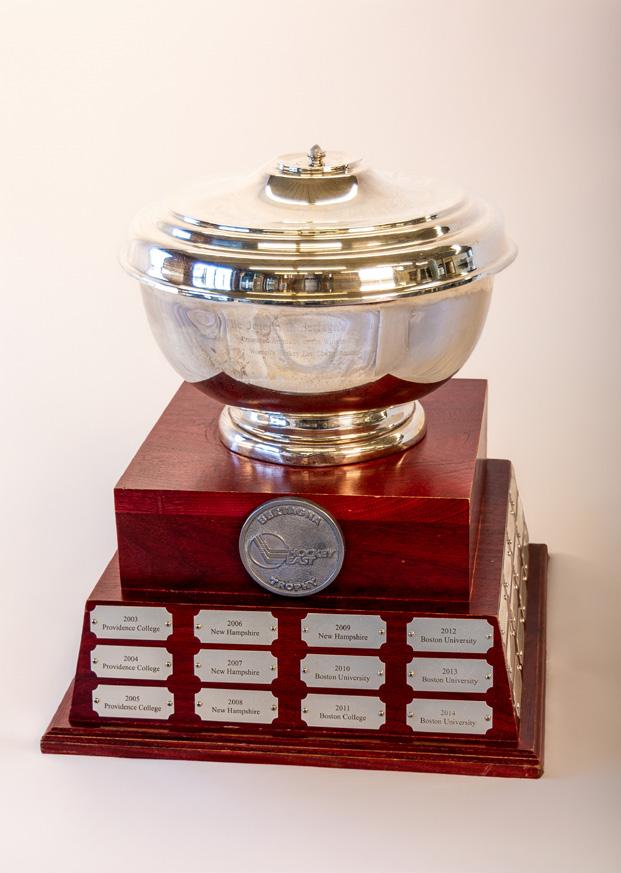
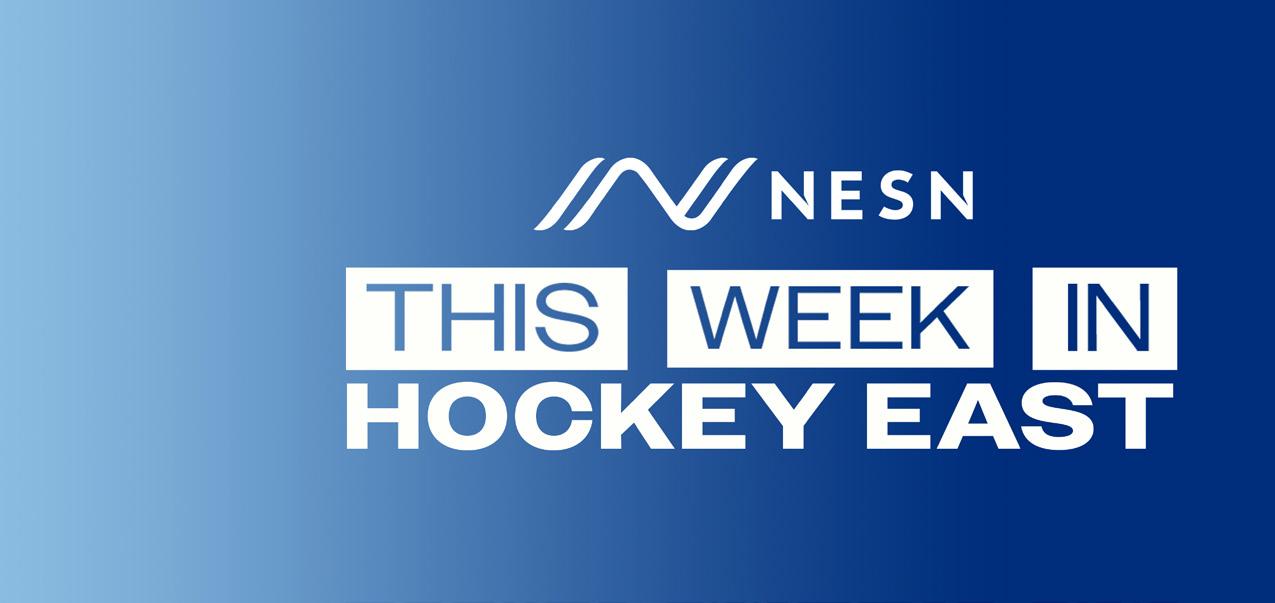
This Thanksgiving, the Friendship Four is returning to Belfast, Northern Ireland to bring some of the top U.S. college hockey teams to the SSE Arena. This year’s participants are Boston University, Harvard University, Merrimack College, and the University of Notre Dame, all competing for the prestigious Belpot Trophy. Since its inception in 2015, the tournament has become a cornerstone event for Hockey East and Division 1 ice hockey, providing local fans with the chance to see high-energy games and top collegiate talent at the home of the UK Elite Ice Hockey League’s Belfast Giants. Beyond the ice, the tournament promotes cultural exchange and strengthens ties between Belfast and the U.S. through sport.

On September 24, it was announced the tournament will again take place in 2025 and 2026.
In January 2026, Belfast will host the first-ever four-team women’s Friendship Series, the women’s equivalent to the Friendship Four. Boston University, Harvard University, Quinnipiac University, and the University of Minnesota Duluth will make history at the SSE Arena, showcasing elite female collegiate athletes on an international stage. This groundbreaking event represents another significant step forward for women’s hockey, providing student-athletes with the opportunity to participate in a high-profile tournament abroad and experience the cultural
exchange that the Friendship Four has enjoyed for nearly a decade. The introduction of the four-team format aims to inspire a new generation of fans and continue to elevate the profile of women’s hockey worldwide, highlighting the sport’s growth and the talent within the women’s collegiate game following two-team showcases in 2019, 2020, and 2024.
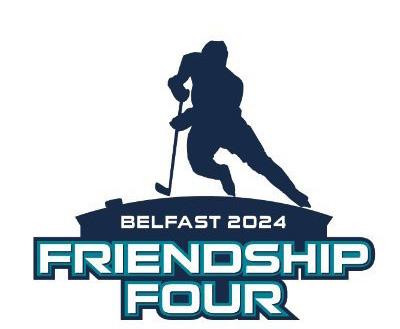
#2 Boston College completed a two-game road sweep of #10 St. Cloud State, toppling the NCHC foe thanks in part to three goals, including two game-winners, from Gabe Perreault James Hagens dished out four helpers, including on both decisive tallies.
Zachary Borgiel turned in the goaltending performance of the season so far, backboning Providence to a 3-0 victory at New Hampshire on Saturday by making 43 saves. The Friars took all six points from the Wildcats in the weekend sweep.
Maine exploded for 11 goals on offense while denying every shot faced from Merrimack in a weekend sweep by scores of 5-0 and 6-0. Harrison Scott racked up seven points, including three goals and four assists, while Albin Boija turned aside all 30 shots he faced from the Warriors.
Vermont’s sophomore goaltender Axel Mangbo earned his first NCAA win and shutout in thrilling fashion, turning aside all 30 shots he faced from UConn in a 1-0 overtime victory on Saturday at the XL Center in Hartford.
The next day, UConn took a 6-5 overtime decision in Storrs in an instant classic that saw five first-period goals and four thirdperiod strikes, including a buzzer beater from Vermont to force the extra frame. The Huskies’ Ethan Gardula scored two goals and added an assist on the overtime winner.
#17 Massachusetts took a 4-3 win at AIC on Saturday by way of a three-goal first period and a power-play strike from Dans Locmelis Michael Hrabel turned aside 44 shots on the day.
UMass Lowell completed a raging comeback on Friday at Holy Cross, erasing a 3-0 deficit and taking a 5-4 victory in overtime. Jak Vaarwerk assisted on the game-tying goal before scoring the game-winner in overtime.
New Hampshire earned its first win against Northeastern since Dec. 2, 2017 with a 2-0 road shutout on Saturday thanks in part to 30 saves from Noemi Martinez Andi Calderone recorded an assist, five blocks and an even on-ice rating in UNH’s homeandhome split with the Huskies.
Boston University extended its winning streak to seven straight with a sweep of league-foe Providence and growing its firstplace lead to four points in the Hockey East Standings (6-1-0). Callie Shanahan made 33 saves on 34 shots at home Friday and 21 saves on 23 shots on the road Saturday in a 3-2 win. The senior has only given up two goals at home this year and carries a goals against average of 1.17 and save percentage of .957.
UConn swept Holy Cross, 2-1 and 2-0, off the back of Megan Warrener’s first shut out of the season with 15 saves in Saturday’s 2-0 victory. Meghane Duschesne-Chalifoux assisted on three of UConn’s four goals in a two-win weekend.
Maine and Vermont split a weekend series as the Black Bears’ Kiia Lahtinen made 17 saves in a 5-1 win on Friday, picking up her first career win in her first start at Alfond Arena. Lily Fetch recorded three points the victory.
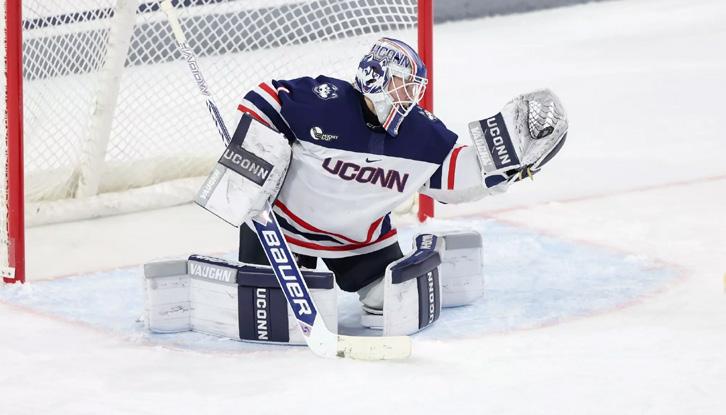
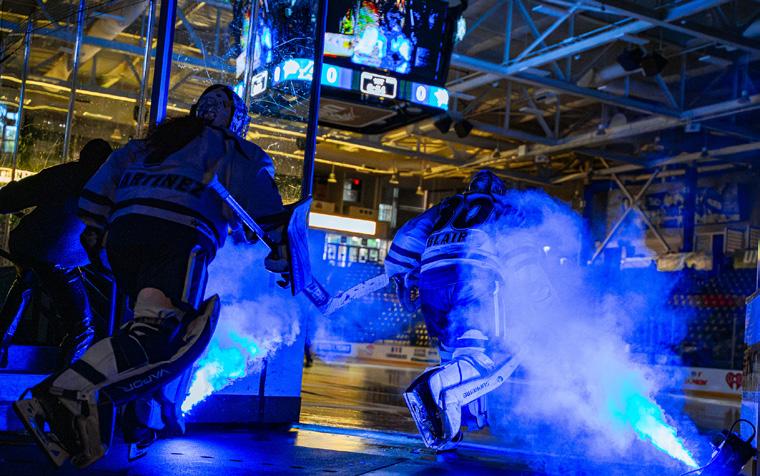
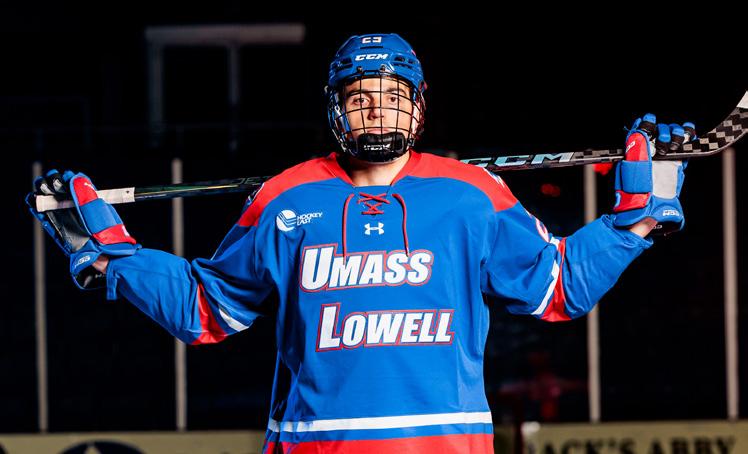
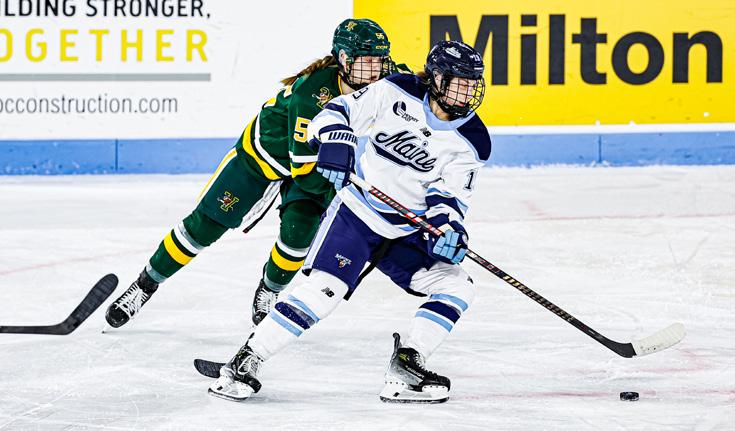

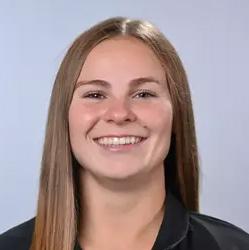
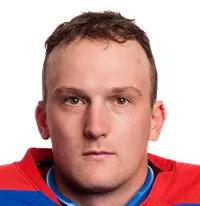

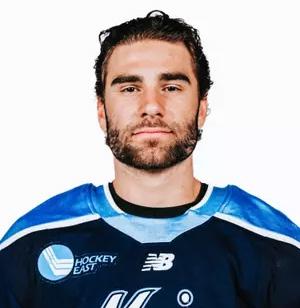

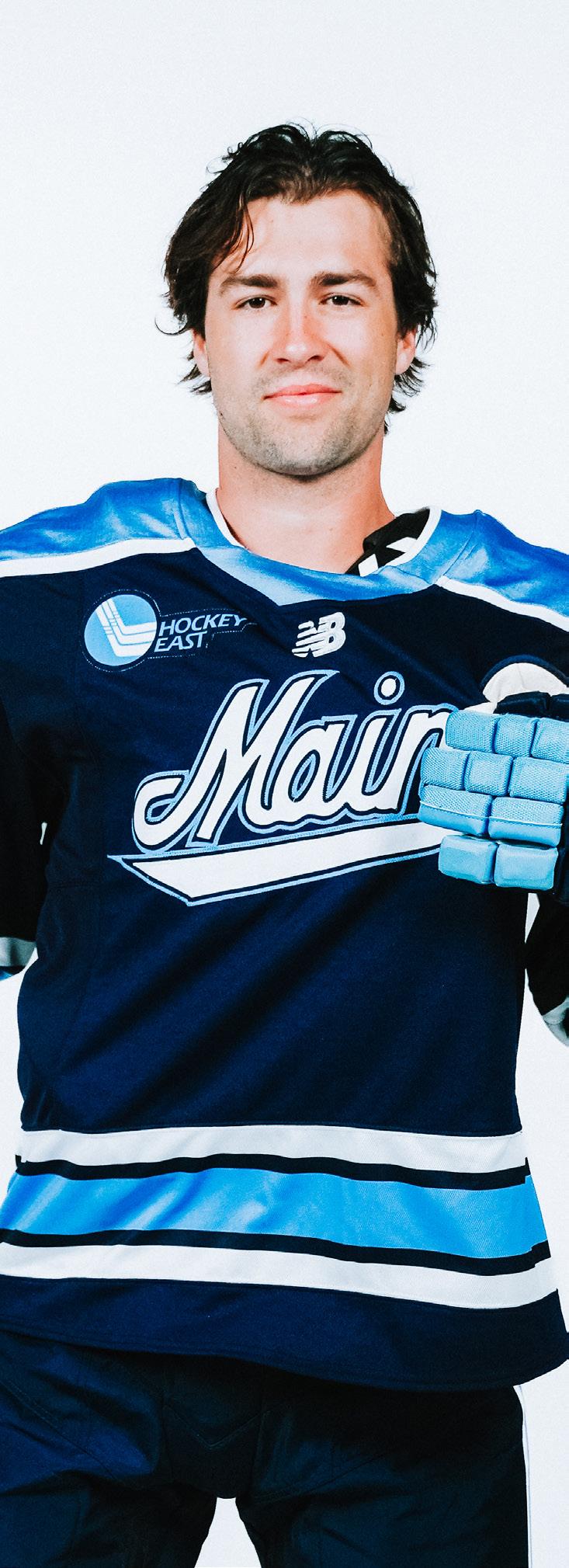
The Maine Black Bears men’s team is off to a powerful start, boasting an undefeated record in conference play (3-0-1) and an overall record of 6-0-1. Maine has been outscoring opponents significantly, with a 31-9 goal differential over seven games. They’ve demonstrated both a reliable penalty kill (88.1%) and a strong power play (26.5%). Leading the league with a balanced attack, their consistency in scoring, combined with strong special teams performance, has kept them in the top position in the men’s standings.
The BU Terriers women’s team is showcasing their skills with a solid showing across early-season games. They have an 8-3-0 overall record and conference record of 6-1-0. Their offensive prowess and strong backend play have made them dominant in Hockey East, positioning them as a team to beat. Key to their success has been the outstanding play from freshman forward Lola Reid, Hockey East player of the month, who has already scored seven goals and tallied six assists over eleven games. Reid’s strong play highlights her as one of the team’s emerging offensive stars. Additionally, senior goaltender Callie Shanahan has solidified BU’s defense, with a .957 save percentage and 1.17 goals against average.
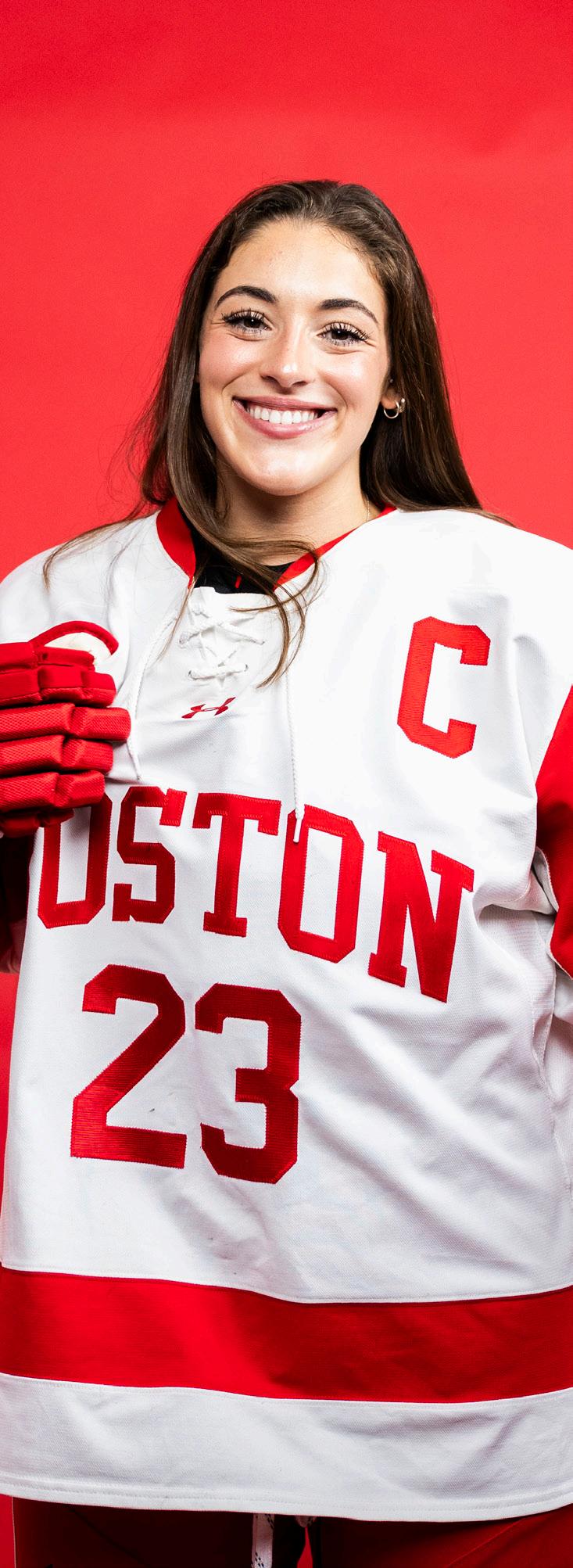
Eamon Powell stands on the brink of his fifth and final season at Boston College. Last year’s heartbreaking defeat in the Frozen Four championship left Powell, and several returning teammates, with a singular focus of addressing their “unfinished business”.
For Powell, the loss has had a silver lining – granting him another year to captain one of college hockey’s most storied programs and a final chance to chase down the elusive national championship win.
“My heart was still at BC,” Powell says, reflecting on why he chose to return for a fifth year. “Since I was 10, 12, it was always the place I wanted to be. When I finally got that offer, I committed right on the spot”.
Boston College was the number one team in the country during Powell’s freshman year. The high-flying Eagles, featuring players like Alex Newhook, Matt Boldy, and Spencer Knight, were projected by many to bring BC its first national championship since 2012. That year saw an unconventional path for the 16-4-1 Eagles to the NCAA Tournament, a 2020-21 season that was severely impacted by COVID-19.
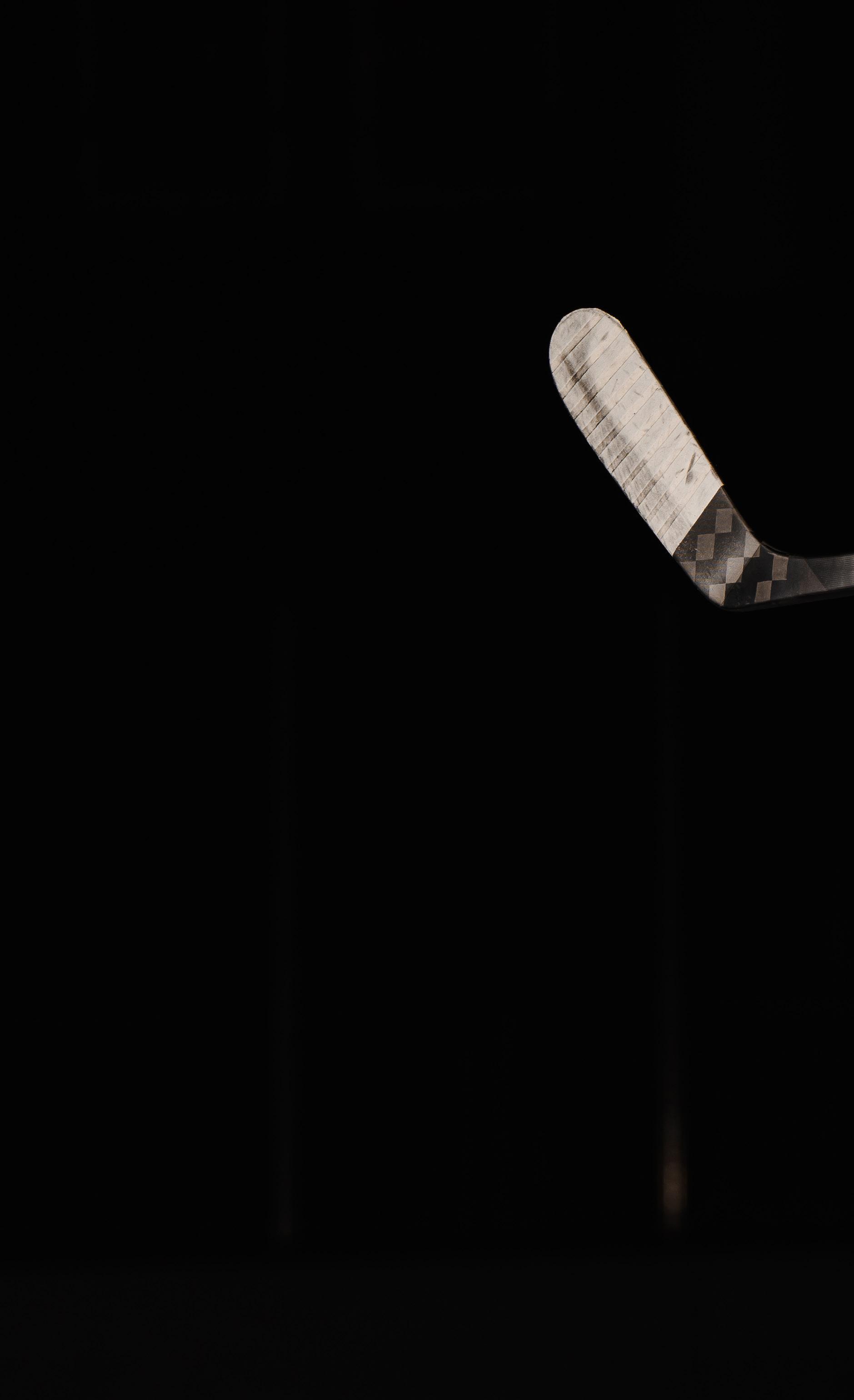

The Eagles fell to St. Cloud in the tournament, forced to return home one game short of a Frozen Four bid. That summer, a significant amount of talent left Chestnut Hill for the NHL and even more to cap and gown.
“The two years after that weren’t necessarily up to the standard of what Boston College hockey stands for,” Powell remembers. During the 2021-22 season, the team went 15-18-5 (9-12-3 in conference play), landing in the middle of the pack in Hockey East - a sudden decline for the star-studded program. But these experiences, Powell believes, set the stage for their renewed success.
“Going through that process and struggling, I think that’s why all the wins last year, and hopefully this year, mean so much.”
At the end of his junior year, Powell was elected by his teammates to lead the program as captain. When he decided to return for a graduate season, they selected him for the position again. As a leader, Powell takes on the added challenge of integrating young, highlyskilled players into the program as quickly and effectively as possible. Some of those players will matriculate to the professional ranks sooner rather than later, allowing for high rates of player turnover that can be difficult to navigate. But college hockey programs rely on steady four-year players as much as the young talent that comes in each year and Powell has learned the importance of never losing sight of the team-first mentality.
“They’re only here for a year or two, but the freshman we’ve had have
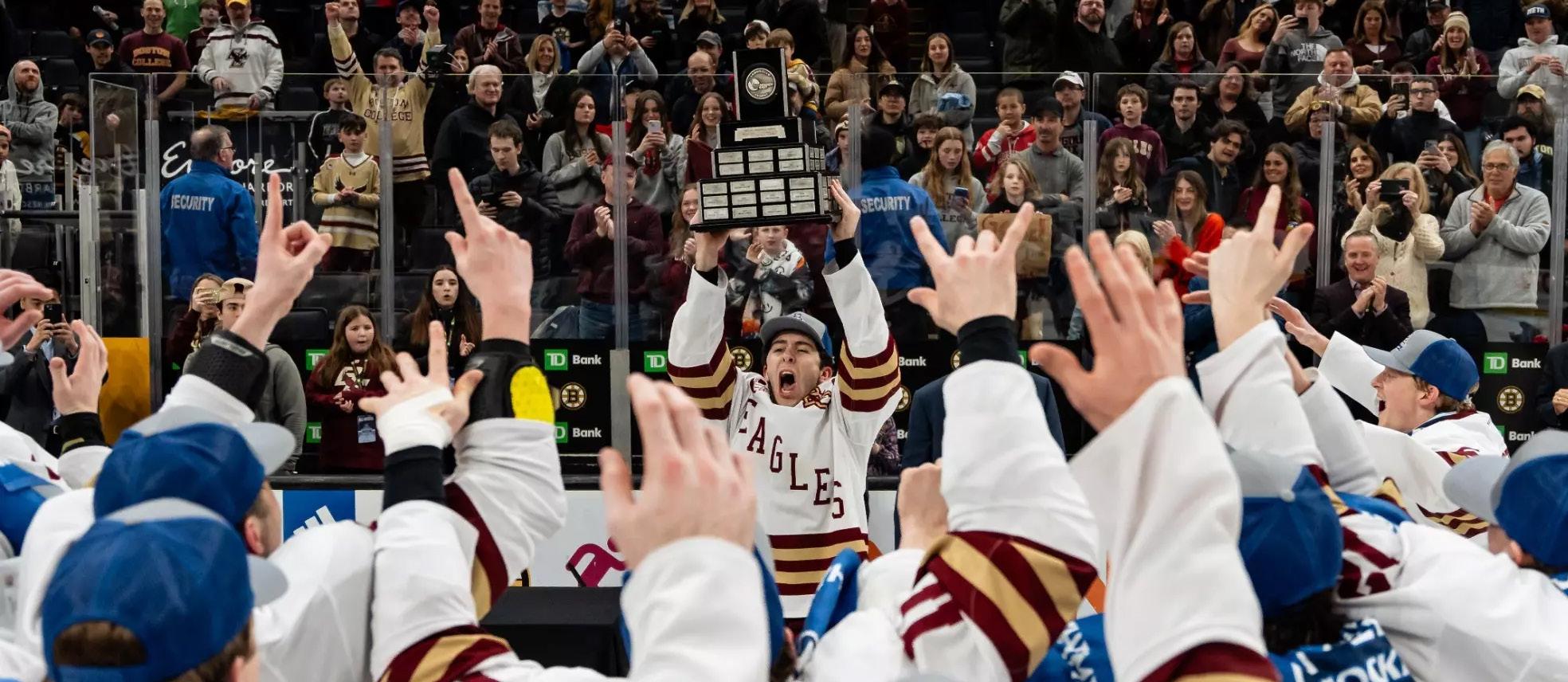
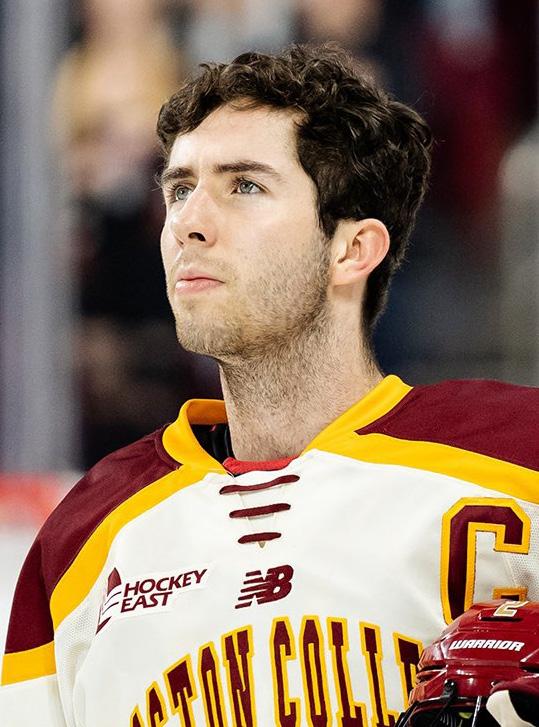


been unbelievable in terms of adapting to the culture of BC and the tradition of what Boston College hockey stands for,” Powell notes “They’re all in on the team and that’s the most important part.”
Sixteen of Boston College’s 27 rostered players for the 2024-25 season are underclassmen, including six freshmen, and Powell sees the importance of supporting them on and off the ice.
“The more you can do to make them feel comfortable and feel like home, be part of a team, and have that close culture, the better they’re going to perform on the ice.”
The transition from junior hockey to college introduces the added complication of competitive academics. Powell, who admits he struggled with the balance of courses and athletics during his first year, has learned what it takes to navigate this transition.
“BC’s a tough school. Managing the school work with the schedule of our hockey team was tough. The upperclassmen when I was younger did a great job at showing me the ropes.”
Now, he aims to do the same for his teammates, ensuring they feel part of the “BC tradition” that defines the team on and off the ice.
“They’re all talented hockey players, they know how to do that very well, that’s something that doesn’t have to be taught to them, it’s more the things around campus, the culture, the little things.”
Powell credits former captain Marc McLaughlin as a key influence in his leadership style, emphasizing a lead-byexample approach.
“He was a big influence on many of our guys and me, showing us what it means to be an Eagle and how hard it is to win.”
“
THE MORE YOU CAN DO TO MAKE THEM FEEL COMFORTABLE AND FEEL LIKE [THEY’RE AT] HOME, THE BETTER THEY’RE GOING TO PERFORM ON THE ICE.
In an increasingly competitive league like Hockey East, Powell explains, “It’s not enough to just throw on the jersey and think you’re going to go out there and win. Whoever comes into Conte Forum is going to give you a really great test,” he said.
That level of focus and preparation is especially relevant during ‘Trophy Season,’ a phrase coined by legendary Eagle, Jerry York. For Boston College, it signals when the team begins to stare down its ultimate goal.
“You hit February, you hit Beanpot season, you’ve got four trophies to win,” he says, referring to the Beanpot, the Hockey East Regular Season title, the Lamoriello Trophy as Hockey East Tournament Champions, and the NCAA National Championship. “From there on out, it’s all playoff hockey.”

Last season, Powell and his teammates captured the Hockey East championship, a moment he remembers with pride.
“There’s no better feeling than to beat Boston University in the Garden to clinch that title.”
But Powell’s final year isn’t just about the wins, it’s also about cementing a lasting legacy for himself.
“I want to be remembered for how I carried myself,” he says, explaining that the impact he leaves on his teammates is as important to him as the trophies they chase together.
Powell’s drive to leave a legacy of integrity and strength reflects the influence of his coaches, York and Greg Brown.
“Coach York taught us to be a great person and keep that standard up always,” Powell recalls.
Reflecting on the two years he spent under York’s leadership, he describes it as “such a cool experience, to play for arguably the greatest coach in college hockey.”
York’s influence remains a constant in the BC program, and Powell feels privileged to help uphold his standards. Even after York’s retirement following the 2021-22 season, Powell notes that “all those things Coach York stood for stayed in place when he left.”
Under Brown, a former All-American and longtime assistant to York, Powell and his teammates are reminded daily of the importance of humility and a consistent effort.
“Coach Brown does a great job at keeping all the guys grounded,” Powell explains.
“Last year, we were having a ton of success and a ton of noise around campus. When that happens, guys get a little high on themselves, but the biggest lesson Coach Brown preaches is to stay even-keeled, not too high, not too low.”
For Coach Brown, true dedication means leaving no room for complacency - a lesson that resonated with Powell
during last season’s recordbreaking success.
“That last stretch, I think we won 15 straight before losing to Denver, but never getting complacent was key,” he says. “Every day, you show up, you’re going to have to put in the work to get the results you want.”
Powell adds that Brown’s mentality helps players approach each game with fresh energy, treating every match up as a new test.
“Every game starts 0-0, and you’re going to have to prove to everyone watching that you’re the better hockey club.”
Melding aspects of both York’s and Brown’s leadership styles, Powell has become part of a tradition that will extend beyond his time in maroon and gold. By upholding the high standards set by his mentors, he’s determined to not only help BC hockey succeed on the ice but also to promote that culture of excellence that defines the program in all aspects.
Powell’s drive to uphold BC’s legacy of excellence reflects his deep commitment to the program, values he learned from his tight-knit hockey family. His older brother recently wrapped a four-year hockey career at Wesleyan, while his younger brother, Seamus, played at BC before transferring to league-rival Merrimack, setting the stage for the Powells to meet as competitors multiple times.
“It’s going to be a lot of fun when we play Merrimack this year. Those games, we’ll probably have a ton of family at,” he laughs.
For Powell, these moments are priceless, a testament to the sacrifices his parents made to support him and his brothers.
“Those are the moments you cherish the most, where you’ve made it to such a high level from two parents who never even played hockey.”
When asked about his favorite memory from his time at BC, Powell briefly mentions
winning Frozen Fenway in January of 2023 (in throwback uniforms reminiscent of Brown’s jersey at Boston College) and winning the Hockey East championship title in 2024. But the story he chooses to tell instead, with a smile on his face, is of his younger brother. During his junior year Seamus was a freshman at BC. When Seamus scored his first collegiate goal, it was Eamon who got the assist with their parents watching from the stands. “That’s something we’ll have for the rest of our lives.”
As Powell looks ahead to this season, he reflects on the special bonds formed with his teammates and the lessons learned throughout his journey so far.
“We had such a special group last year, and I’ve loved my years at BC,” he says. “If we had won [the National Championship last year] or something panned out differently, I [might have been] in a different mindset,” he admits.
This fifth year isn’t just about team success; it’s also a chance for development.
“I’ve always been an undersized defenseman, and my whole career I’ve been rushing around - jumped right into college when I was 18, jumped right into juniors when I was 16. Taking an extra year, development-wise, is a smart move,” he explains.
“It’s the best-case scenario all around. I get another year and another crack at it. Right now, I’m just happy where I’m at.”
He adds, “When I was younger, it was always Boston College. I always said if I ever got the chance to go there, I was going to.”
Not only has Powell achieved that childhood dream of playing at BC, but he has exceeded it by becoming a twotime captain and leaving his own lasting impact on the program - more than his younger self could have ever hoped for. With childhood dreams accomplished, now all that’s left is to take care of unfinished business. ■

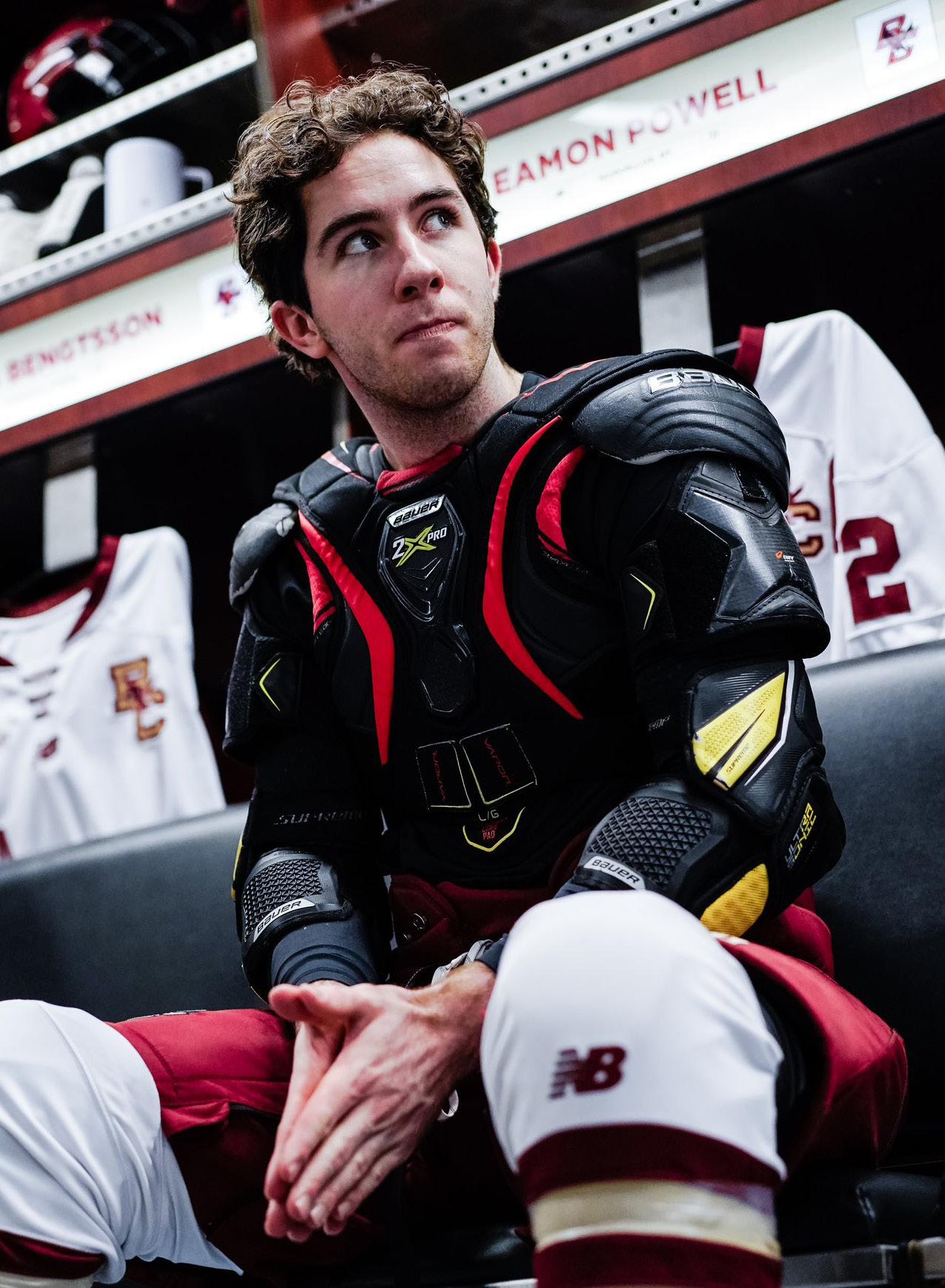
After being drafted by the Tampa Bay Lightning in 2020, Powell is set to become a free agent upon completing his time at Boston College, having surpassed the four-year eligibility mark. “I’m kind of free market for that, but I’ll be playing professionally after,” he says. “In terms of where—I’m still unsure.”
This year is crucial for Powell as he navigates his future with the support of his family, carefully considering his options once the season concludes. “That process still plays out throughout this year,” he explains.
“Once our season is done, hopefully in April, I’ll sit down with my family and evaluate the options to find the best fit.”

One of the most ambitious projects in college athletics today marks a milestone for the Black Bears, as Alfond Arena undergoes a complete retrofitting thanks to a $170 million gift from the Harold Alfond Foundation. The transformation will create a cutting-edge facility from the ground up, enhancing both athlete and fan experiences while retaining the legendary environment of one of the most notable arenas in college hockey.
Several Hockey East programs have recently undertaken significant renovations to their hockey facilities, enhancing both player development and fan experiences.
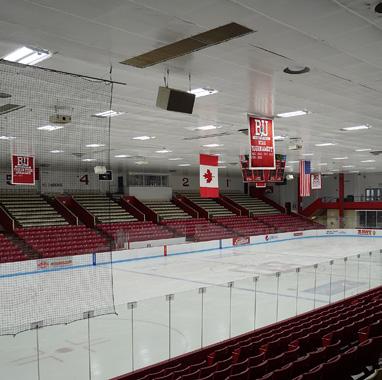
While Walter Brown Arena has been around for a while, built in 1971, the recent updates—particularly for the women’s team—signal BU’s investment in providing its female athletes with modernized facilities, including upgraded locker rooms, enhanced seating, and a video board. The new-look Wally B is set to debut in 2025.
UNH Athletics is investing over $20 million to renovate all team spaces within the Whittemore Center, including men’s and women’s locker rooms, sports medicine, and study spaces for both programs. The ice rink will join with the Hamel Recreation Center, currently next door, to become the Key Auto Group Complex.
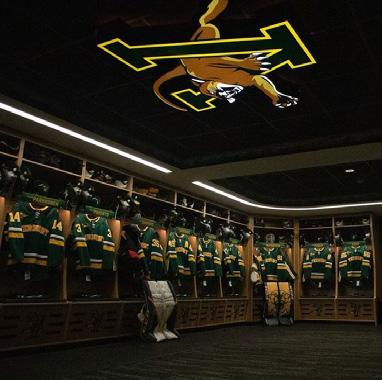
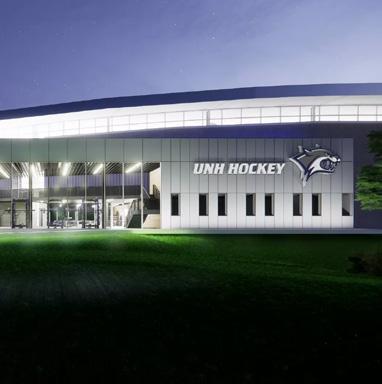
The completion of UVM’s multi-year renovation to Gutterson Fieldhouse was a major project, including extensive updates to player and team spaces. These renovations are part of a larger, multi-phase project that includes upgrades to both athletic and recreational facilities.
These upgrades are just a few examples that reflect the ever-evolving nature of Hockey East facilities, as its programs continuously strive to provide top-tier environments for both athletes and fans. The member institutions’ commitment to high-quality, enjoyable sporting experiences is evident in the investments being made across the league, ensuring that Hockey East remains a leader in collegiate hockey.



BOSTON COLLEGE
18 years old, center, projected to go number one in the 2025 NHL Draft, played the last two years for the USNTDP, his 187 points over those two seasons is the fifth-most in program history, 10 points (1 goal, 9 assists) in 6 games at BC.
NORTHEASTERN
19 years old, winger, Gold medalist with Team Canada at the 2023 IIHF U18 World Championship, 79 points in the last two seasons with Cégep Limoilou Titans in the QCHL (W), 11 points (4 goals, 7 assists) in 11 games at Northeastern.
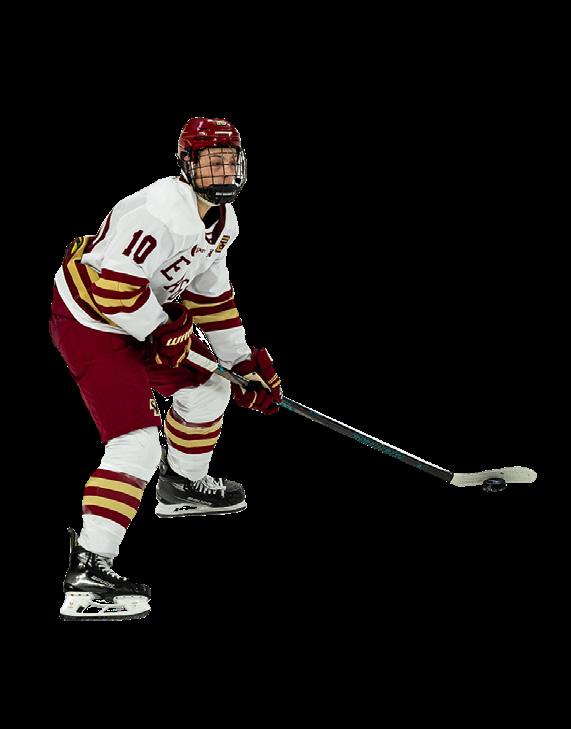
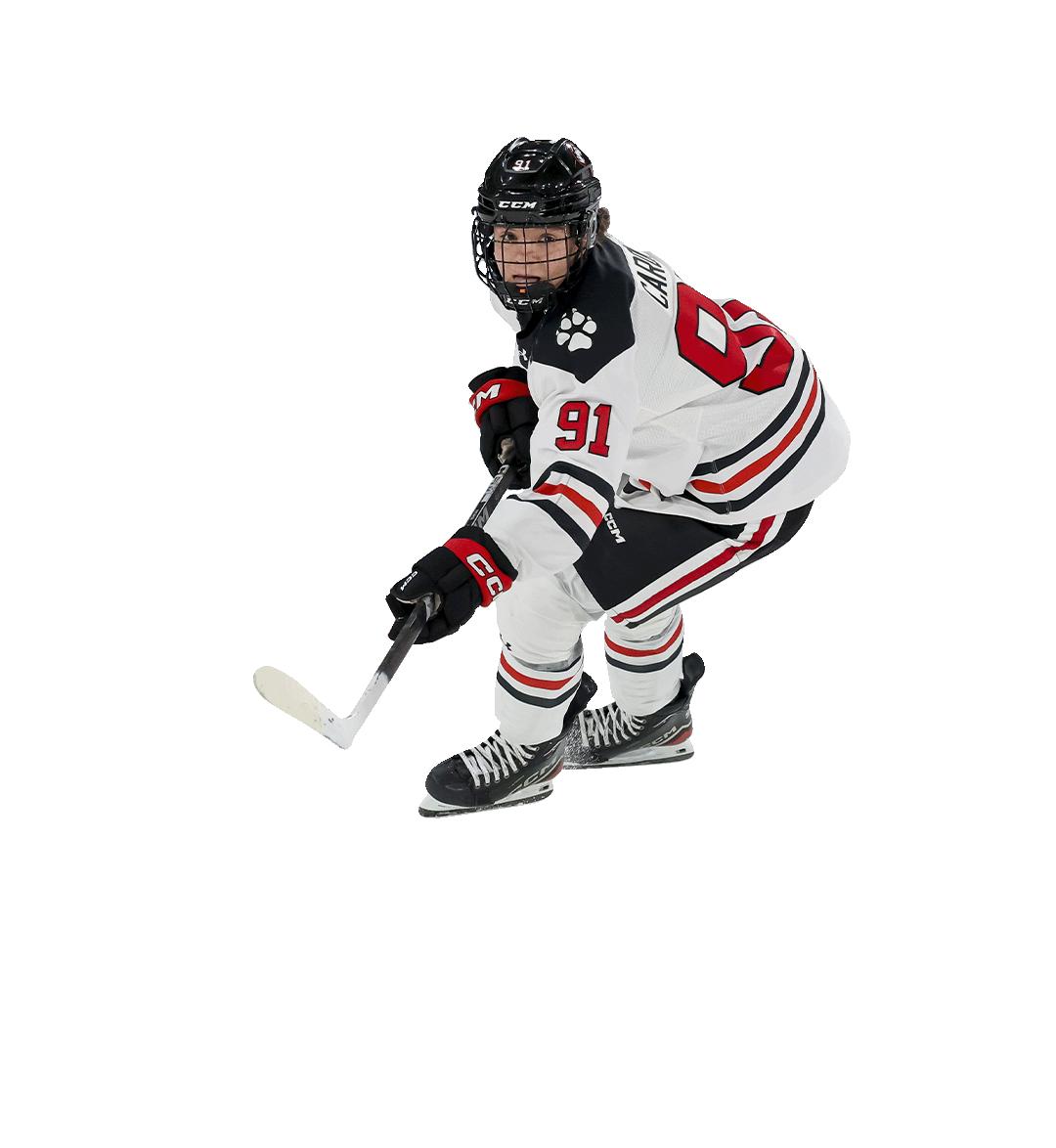
BOSTON UNIVERSITY
18 years old, left-winger, selected in the first round (20th overall) by the New York Islanders in the 2024 NHL Draft, ranks first in USNTDP history with 127 goals and 52 power-play goals, 7 points (5 goals, 2 assists) in 7 games at BU.
CLAIRE MURDOCH UCONN
18 years old, forward, Canadian National Development team member, Women’s National’s 2023 Gold medalist, 124 points in a single season playing for the Burlington Barracudas in the OWHL 22 AA (W), 8 points (5 goals, 3 assists) in 10 games for UConn.
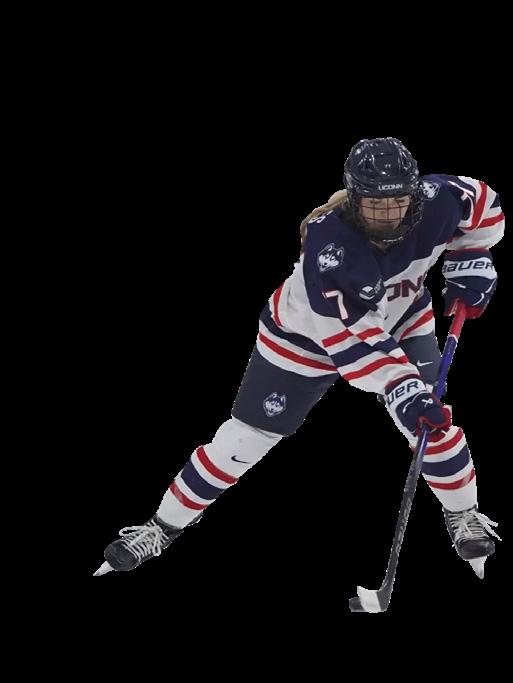
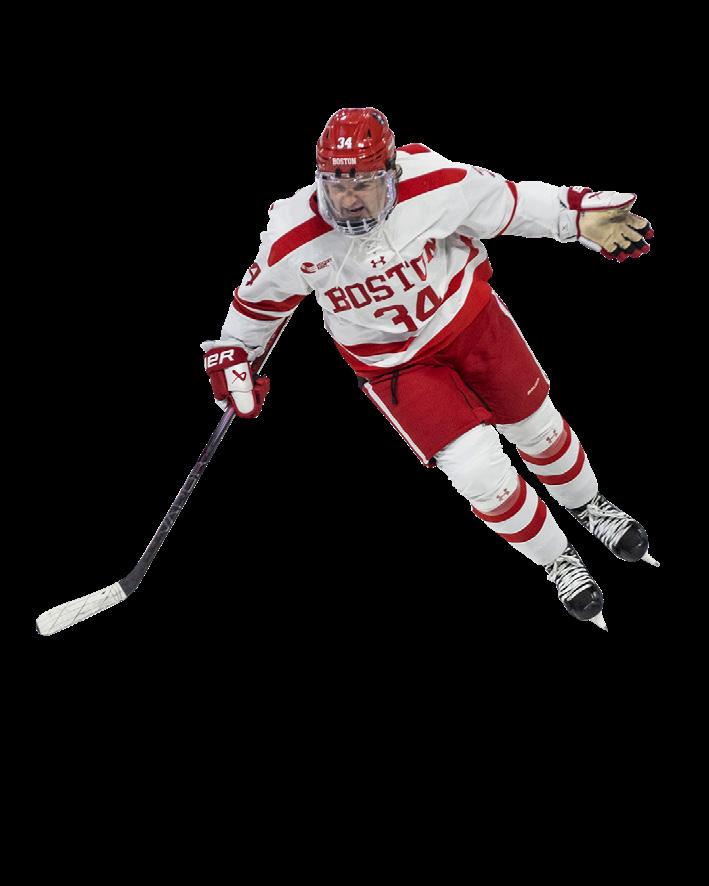
BOSTON UNIVERSITY
18 years old, forward, played at Shattuck St. Mary’s Prep with 94 points in two seasons, 2x USA Hockey Tier 1 Girls U19 National Champion, 13 points (7 goals, 6 assists) in 11 games at BU.
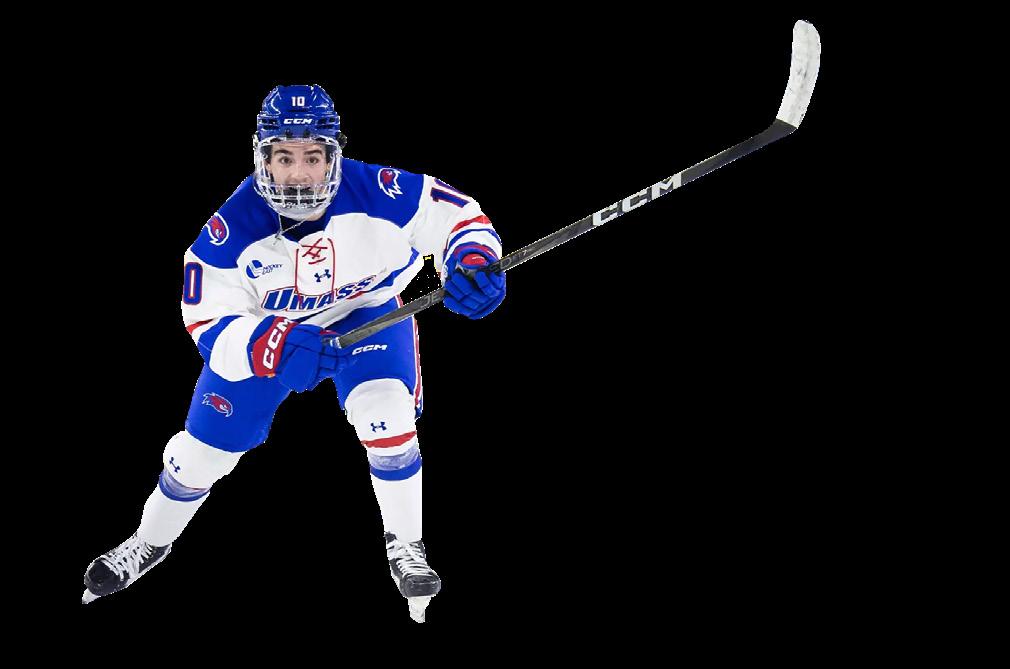
CHRIS DELANEY
UMASS LOWELL
20 years old, center, undrafted, played three years in the USHL totaling 169 games, 23 goals and 59 assists for 82 points, 7 points (5 goals, 2 assists) in 6 games at UMass Lowell.
BOSTON COLLEGE
James Hagens
Tricia Piku
BOSTON UNIVERSITY
Cole Eiserman
Lola Reid
UCONN
Kaden Shahan
Claire Murdoch
HOLY CROSS
Amanda Aslan
MAINE
Oskar Komarov
Stephanie Jacob
MASSACHUSETTS
Francesco Dell’Elce
UMASS LOWELL
Chris Delaney
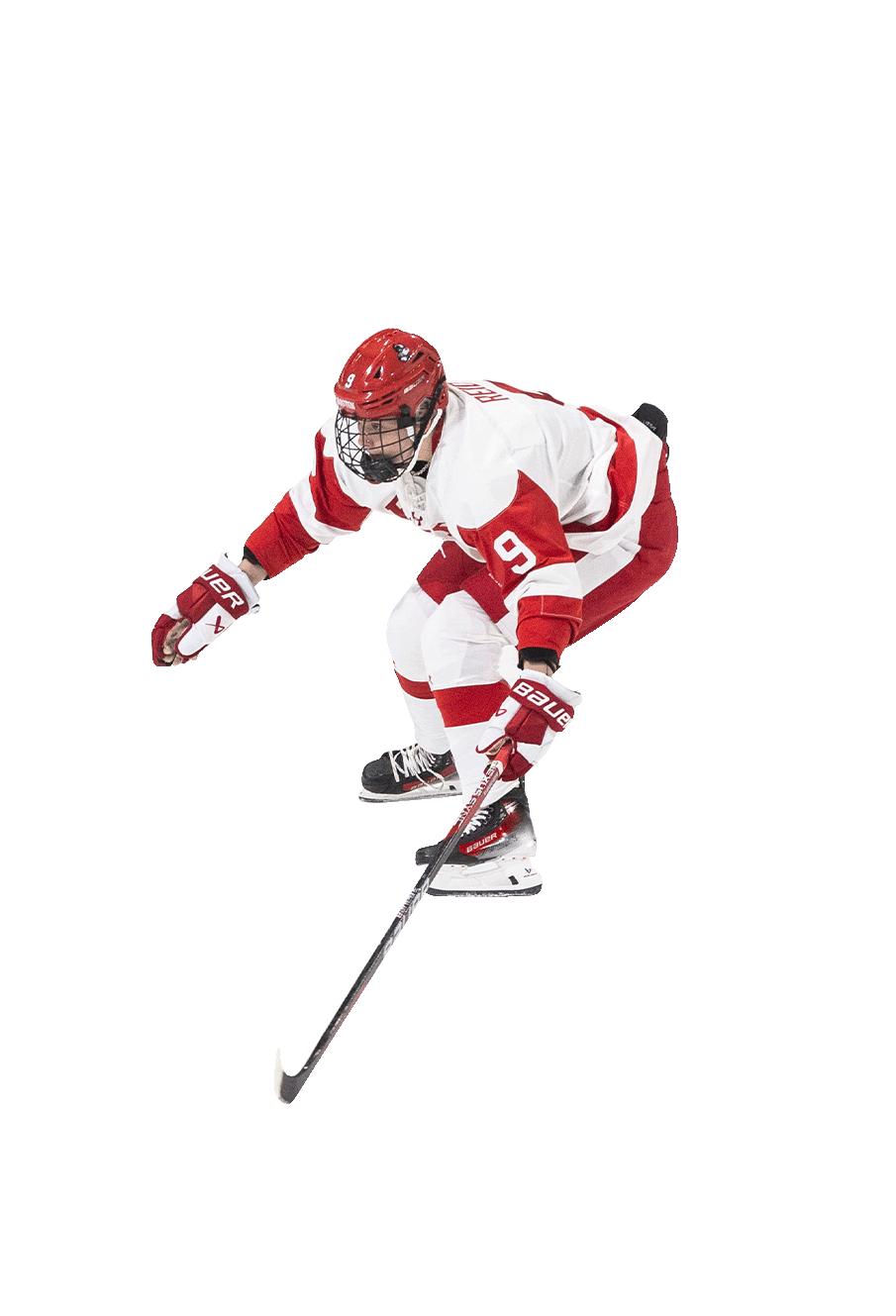
MERRIMACK
Nick Pierre
Margaux Favre
NEW HAMPSHIRE
Connor MacPherson
Charlie Rauch
NORTHEASTERN
Griffin Erdman
Éloïse Caron
PROVIDENCE
John Mustard
Emma Hofbauer
VERMONT
Colin Kessler
Josie Hemp
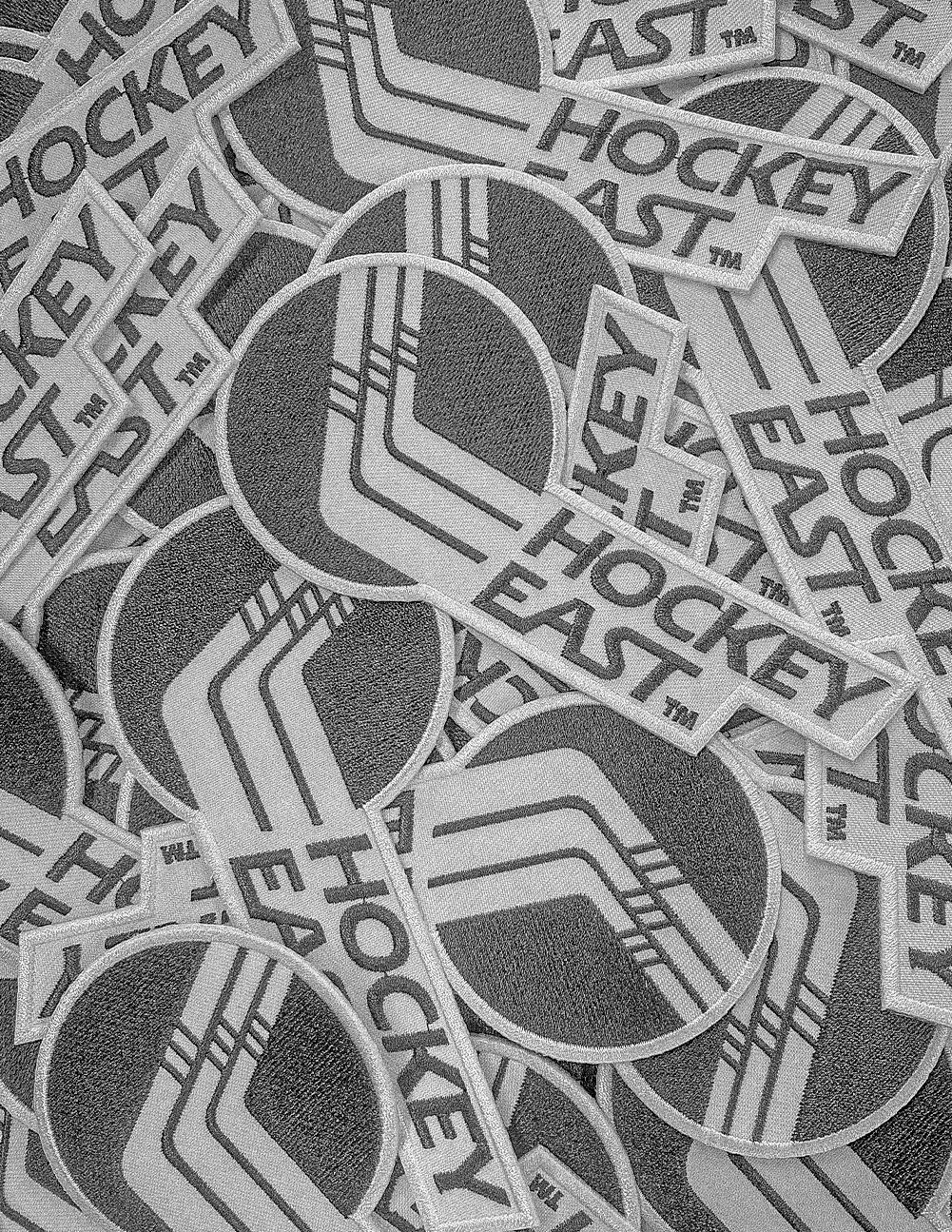
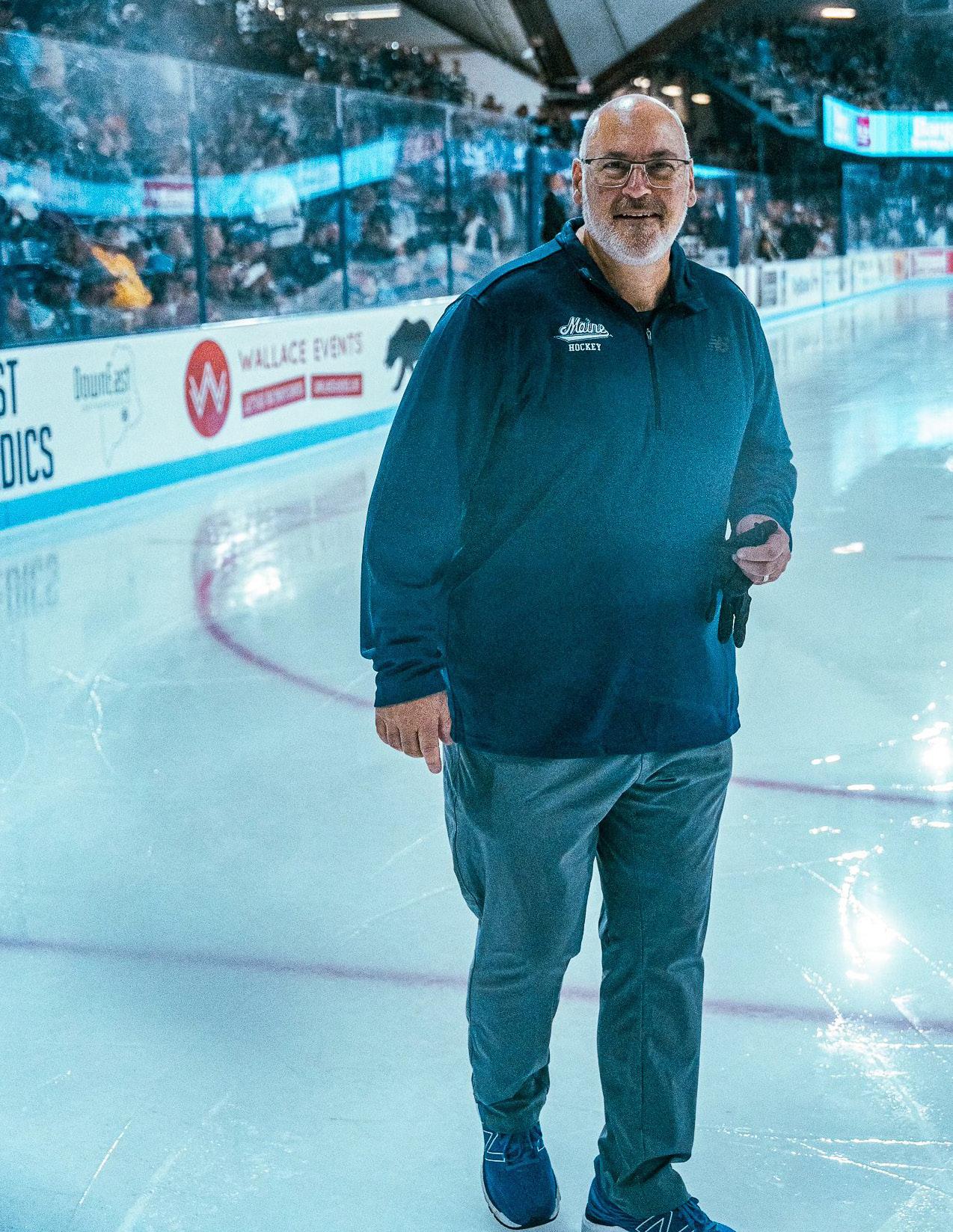

Had you been in Orono on the night of March 17, 2020, you could have found two men sitting at a local bar. One was Jeremy Swayman, finishing his junior year of college at the University of Maine as one of the greatest hockey players in Black Bear history. The other, Paul Culina, was wrapping up what was arguably the most difficult season of a 25-year career of treating Maine athletes.
“We were lined up to play in the playoffs and host a home game as COVID hit us,” Paul Culina explains “That year, in particular, with Swayman in net, anything could have happened.”
“So we went down to the local brewery and had a chance to say goodbye, knowing that great things were coming for him,” Culina recalls. “We had a beer the night before the world closed [due to COVID shutdowns] and that next day [Swayman] signed his first Bruins contract.”
Paul Culina’s journey into the world of athletic training began in college, where he attended Norwich University. “When I entered college, I really had no idea what I wanted to do. I knew I liked sports, I liked math and science. But I didn’t really have a direction.”
In search of a work-study job, Culina approached the athletic director at Norwich, hoping for a chance to drive the Zamboni. Instead, he was pointed to the athletic training room.
“One thing led to another,” he says. “It started with a work study job, learning how to tape ankles and the menial things to make it easier on the staff.”
Those “menial things” changed the course of Culina’s education and life. He began studying athletic training, graduating in 1991, and earned his master’s degree in 1993. And after studying and working at Norwich for about seven years, Culina was looking for a change of pace.
“I knew that if I stayed there, I’d probably get a little stale. I needed to learn more,” he said.
Culina relocated to Bowdoin College, about 30 minutes from his hometown. He was determined to make Bowdoin a long-term stop but after only one year, he was given the opportunity to join the hockey program at the University of Maine.
Throughout the last 30 years, Culina’s time at Maine has included responsibilities across multiple sports. He remembers those first few years being hectic. After six years he became the head athletic trainer, a role he held for 12 years before stepping down and returning to work with hockey full time.
The athletic trainer is the primary care provider for athletes, coordinating physicals, collaborating closely with doctors, and focusing on the prevention of injury and illness. Through their comprehensive approach to athlete health, ATs play a crucial role in ensuring that athletes are ready to perform and remain healthy throughout their careers.
“The most fulfilling thing is when you’ve got somebody that’s really struggling with something health-related, and to play a part in getting them back to that full participation status,” he shares. “You see somebody that may have been out for quite a while and to see them go out to warm-ups and play in their first game after a while and that warms my heart.”
For Black Bears captain Lynden Breen, his relationship with Culina is more than just staying game-ready – it’s a bond they’ve forged over four years on and off the ice.
“Paulie, to me, is like another father around the rink,” Breen said.
By January and February, the winter gets long and the hockey gets hard, grinding down even the toughest players. But Culina’s positive energy and dedication help carry the athletes through.
“He’s the guy that always has a smile on his face,” said Breen. “He’s there for you and makes sure your body is ready to perform come Friday, Saturday every week.”
PRESIDENT
MAINE ATHLETIC TRAINERS
ASSOCIATION (2022-PRESENT)
MEN’S HOCKEY ATHLETIC TRAINER
UNIVERSITY OF MAINE (2012-PRESENT)
HEAD ATHLETIC TRAINER
UNIVERSITY OF MAINE (2001-2012)
ASSISTANT ATHLETIC TRAINER
UNIVERSITY OF MAINE (1995-2001)
ASSISTANT ATHLETIC TRAINER
BOWDOIN UNIVERSITY (1994-1995)
ASSISTANT ATHLETIC TRAINER
NORWICH UNIVERSITY (1992-1994)
MEd, ATHLETIC TRAINING
NORWICH UNIVERSITY (1991-1993)
BS, HEALTH AND PHYSICAL EDUCATION
NORWICH UNIVERSITY (1985-1991)
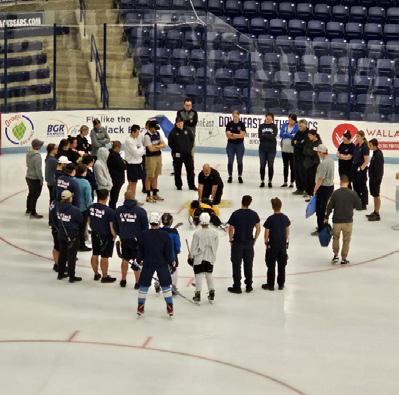

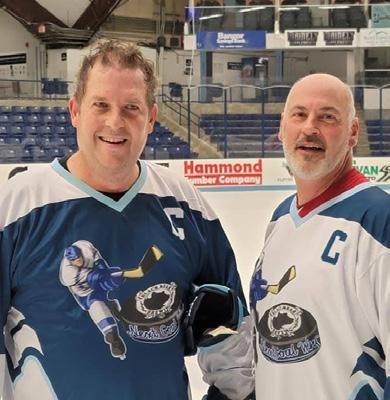
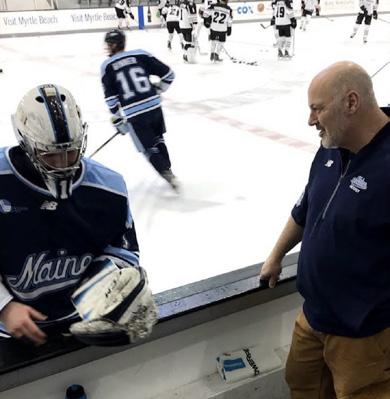

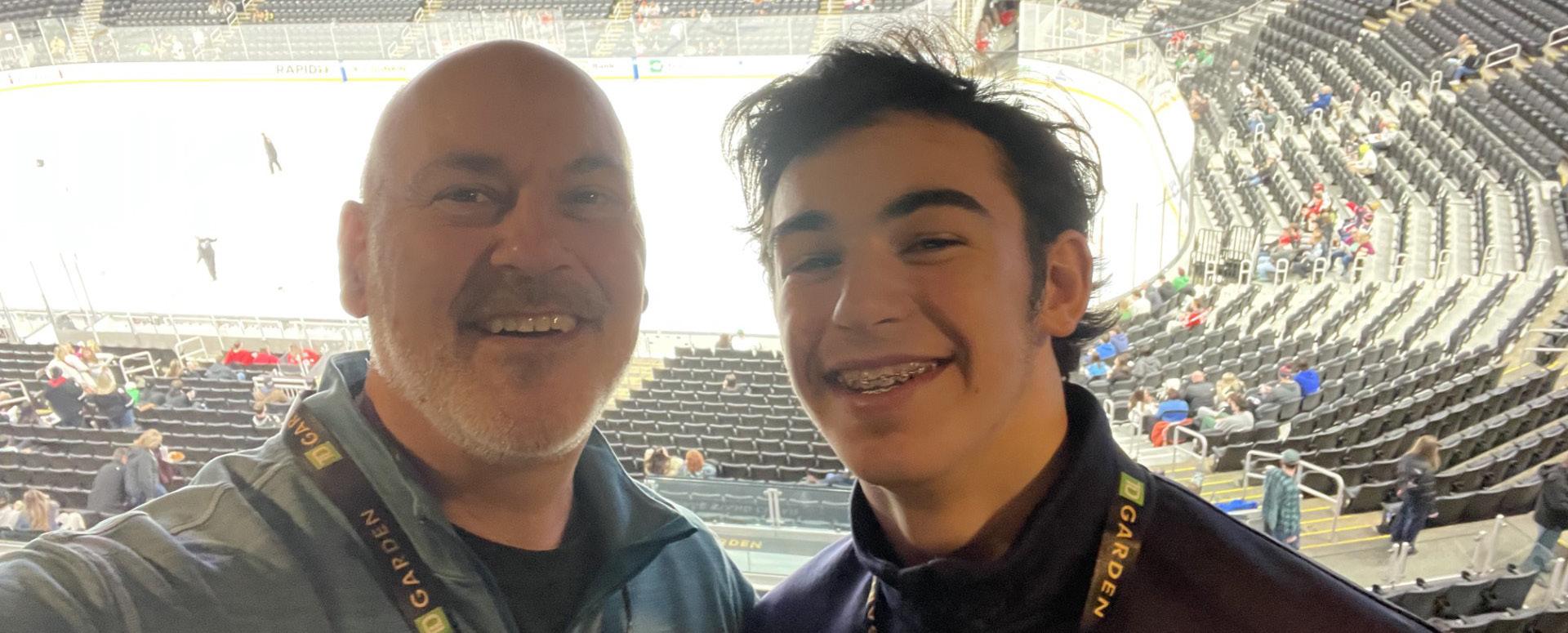
Culina’s priority is long-term health and performance, even if it means tough calls, like withholding athletes from practice or games.
“I’m a guy that doesn’t like to not practice,” Breen admits. “But for numerous times in my career he’s had to make decisions to pull me out. I don’t always love him for it,” he laughs.
But while the players are focused on winning, Culina ensures they stay safe, healthy, and competitive in the long run. Reflecting on a summer filled with doctor’s visits, “Paulie’s always here driving me to the doctor, never makes me drive, and spent hours of his summer helping me,” Breen says. “It’s special to have him around and I’m just super fortunate.”
Over the years, Culina has come to learn that the relationship between athletic trainer and player is a two-way street.
“They teach me new things every day,” he reflects. “What I’ve learned from my players is that you’ve got to be adaptable. You’ve got to be able to pivot really quickly.”
He emphasizes the importance of fostering a genuine connection with the team.
“It’s really important that the players know that you really care. You may not have all the answers, but you’re going to help them to the best of your ability.”
When strolling down memory lane you don’t have to go far to find some unforgettable moments in Culina’s career.
“One of the most memorable moments in my career is winning the
national championship in 1999,” he recalls. At the time, he was still relatively young in the profession, “I kind of figured these things would be a little bit easier to win after winning one in my first four years,” he laughs.
Culina takes pride in the success of the players he has worked with, noting, “Whether it be Stevie Kariya, Ben Bishop, Gustav Nyquist, Spencer Abbot, Brian Flynn, Jimmy Howard, or Swayman, all those names go on to do remarkable things at the next level and it’s always cool knowing that you did something to help them.”
With his experience at Maine and a career that’s impacted some of college hockey’s biggest names, Culina is a sought-after mentor for aspiring ATs. When he gets calls asking for advice on how to make it as an athletic trainer in hockey, he encourages them to prioritize excellence in their job above all else.
“I consider myself an athletic trainer first and somebody that works with hockey second,” he emphasizes. “The first thing I’ll tell them is number one, be the best athletic trainer you can be first, because it’s all about your patient care.”
“We may have 5,000 people that show up for a hockey game but that one heat in a track meet or swim meet is just as important to that athlete as every shift is to the hockey player,” he explains.
He also encourages young ATs to find a way to give back to their communities.
“The other thing I tell people is to get involved and to start giving back a little bit and to find the one thing that really
drives you,” says Culina. “I promise you, it leads to other things.”
“I’ve had the opportunity to get involved at the national and the state level,” he shares. Culina is a member of the National Athletic Trainers Association (NATA) and serves as the President of the Maine Athletic Trainers’ Society (PHATS). He’s also been the district representative to the National College and University Athletic Trainers’ Committee.
His early career at the University of Maine was guided by Wes Jordan. “I only got a chance to work with Wes for two years before he retired,” Culina explains. “But he was kind of a legend. Not only was he one of the grandfathers here in Maine but on the national level too, everybody knew Wes.” As a young AT at Maine, Wes taught Culina about getting involved and giving back.
He also explains that his mom was always involved in community initiatives, volunteering her time and effort, which taught him the importance of service from a young age.
“It’s just really rewarding,” he explains about his involvement in the athletic training community. “It’s easy to participate in something. It’s a bit more difficult to commit to something. But to be committed to something is much more rewarding than simply participating.”
“When you get to this point in your career, you do reflect. When I hit my 500th game six years ago. It was like, ‘Wow, you’ve done 500 games!’ - to me, it’s not a big deal. I just came to work everyday.”
Culina’s path, like most people’s, was not always traditional but he has built a reputation and legacy for himself at the University of Maine. “I look back and I’ve got no regrets with the path I’ve taken. I’m in a really cool position right now.”
Even in the midst of a long and successful career, he looks towards the future with anticipation.
“I’ve got a few years left before I retire, he shares. While he loves his job, he’s clear: “I’m not going to be one of those people that works until I’m 80.”
His current focus is on their team, “I’m excited about what our team is doing, we’ve had a bit of a revival here. I love having a part in that and I’m looking forward to that.”
Culina’s passion remains strong as he talks about what lies ahead. “I’m not done yet,” he asserts. “You always have to learn and look for what’s new. What’s the next chapter? I don’t know.” Smiling he says, “I’ll finish what I’m doing first and then see what door opens next.”

Paul Culina’s love for hockey extends outside his professional life, it’s also a big part of him as a person. “I’m a lifelong hockey guy,” he states, reminiscing about his days as a high school player in Maine. After taking a break from college, he returned to find his playing days behind him. When he moved back to Maine he began playing in some adult leagues. Eventually, Culina and a few friends decided to start their own group, inviting players they knew were on their same pace.
The group established a few simple rules: don’t be a jerk– take it easy, don’t hog the ice or the puck– just have fun playing the game, and stay and drink a beer afterward. Their post-game gatherings grew into a social event they looked forward to just as much as the games.
“The guy who owns the sports bar started bringing a few pizzas for us to eat after we skate,” Culina explains. “So now the hour of ice turned into an hour on the ice and two hours in the dressing room, having a couple of beers and having some pizza and sharing some laughs.”
Eventually the group decided to brew their own beer, leading to the creation of “Next Goal Wins,” a fitting name for their creation. “At the end of the night, the last five minutes, it’s overtime. Next goal wins,” Culina shares.
Paul Culina’s experience on the Black Bears support staff is invaluable and full of lessons that resonate far outside the bounds of hockey. Culina quips, “One of these days I’m just going to write a book of stories, funny things, sad things from my career.” For those who have had the privilege to meet him, the prospect of reading those stories is surely exciting. ■

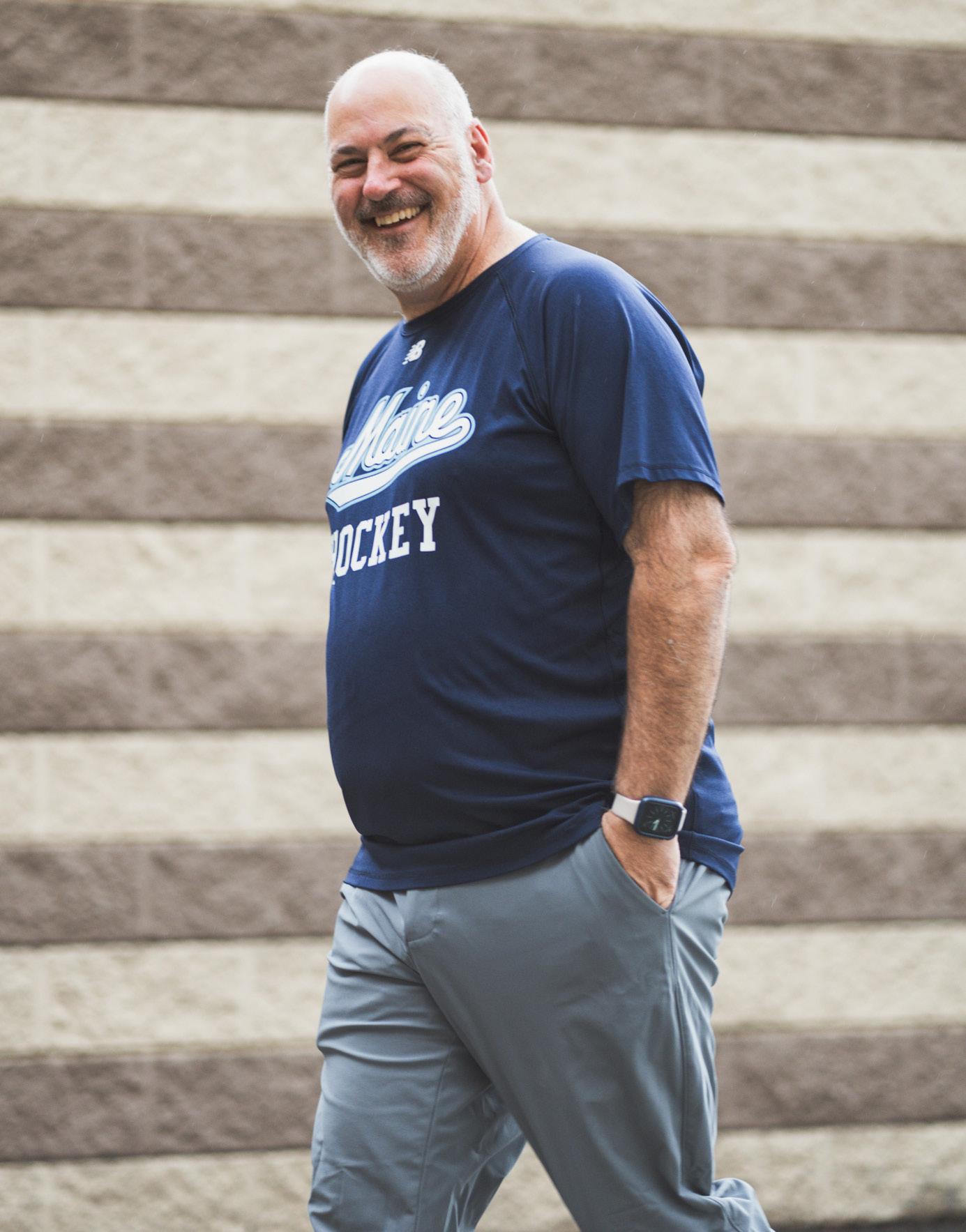
The game of ice hockey is in the midst of a technological renaissance, fueled by innovations that are transforming player training, coaching strategies, and overall program operations. Hockey East sits at the forefront of this evolution, dedicated to integrating these advancements into the highest level of the collegiate game.
A significant milestone in this transformation is the recent partnership between Hockey East and 49ing AG, announced as part of a pioneering pilot program for the 2024-25 season. This collaboration will introduce AI-powered video and data analytics to college hockey for the first time ever. The 49ing Hockey AI platform is designed to break down live game footage, delivering realtime video tagging, advanced statistics, and comprehensive game analysis for team staff, players,
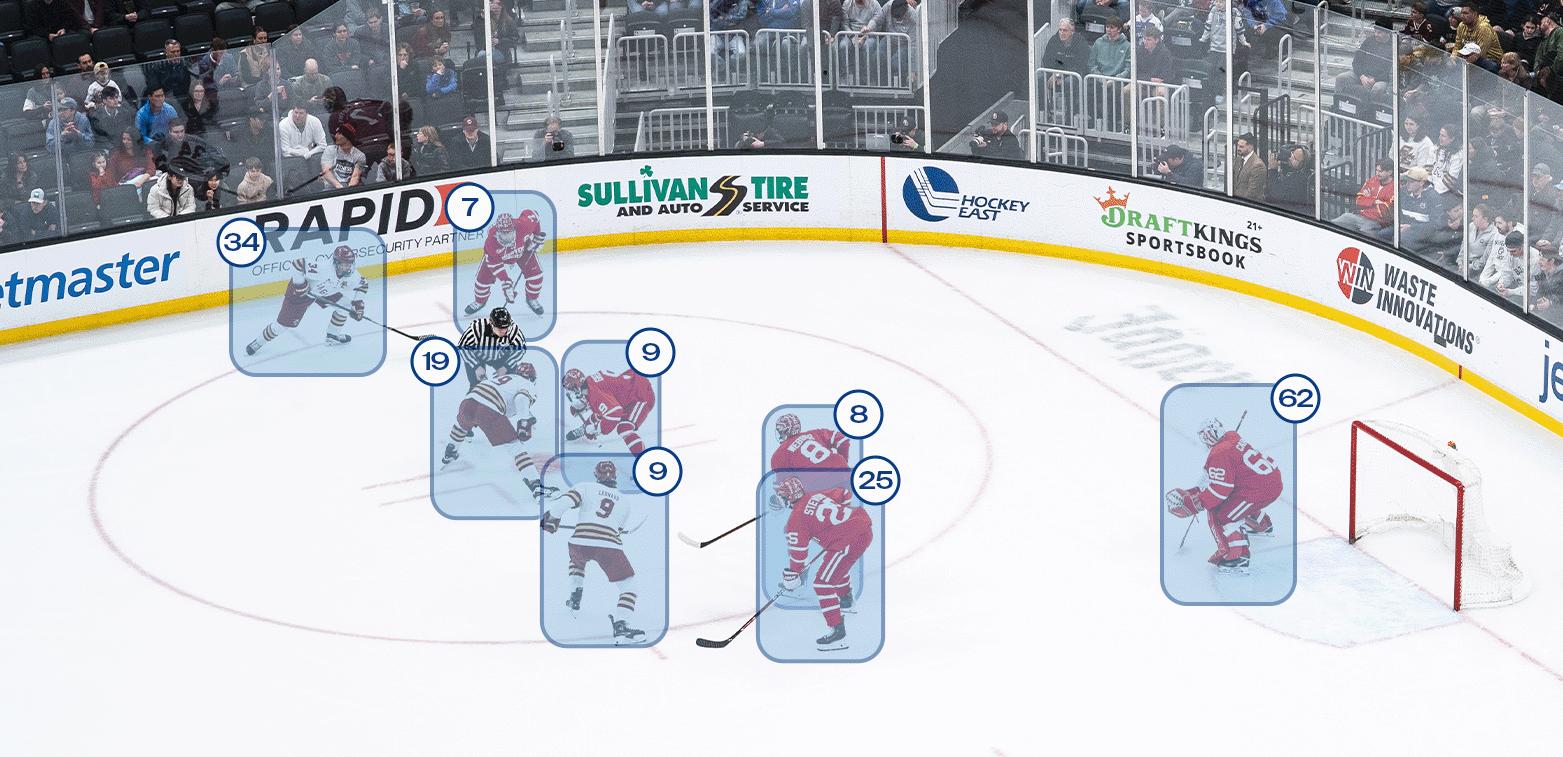
officials, and administrators. This technology promises to benefit all men’s and women’s programs within Hockey East, enhancing hockey operations, officiating, and player development processes.
Hockey East Commissioner Steve Metcalf expressed enthusiasm for the partnership, noting the impressive capabilities of 49ing’s technology, which has already made waves in Europe’s top professional leagues. He stated, “Hockey East is looking forward to collaborating with 49ing on this innovative pilot project to bring this technology to college hockey for the first time.”
The accessibility of these advanced tools will enable member institutions to make datadriven decisions, ultimately improving performance and strategy on the ice, while delivering a more competitive game for fans to enjoy.
In addition to data analytics, several member schools within Hockey East are utilizing another product, the Catapult system. This is an advanced technology that provides information that enhances player training and performance during games. This system employs wearable devices that track athletes’ movements, providing real-time data on speed, distance, and workload. By analyzing this information, coaching staff can gain valuable insights into each player’s physical demands and performance levels.
Understanding metrics related to fatigue and exertion allows teams to tailor training regimens and manage workloads effectively, ensuring that players are prepared for both practice and competition. This proactive approach helps to prevent injuries by allowing coaches to

identify when a player may be overexerted or at risk of strain, ultimately promoting performance throughout the season.
Engineering innovations also play a critical role in player development. For instance, Ashley Waldron, a junior engineering student and equipment manager for Boston College Men’s Hockey, combined her passions for hockey and engineering to create the SaucerPost—a training tool that enhances players’ stick handling and puck-passing skills through a versatile design accommodating various drills.
49ing is a sports data & analytics company dedicated to ice hockey. Our mission is to harness technology and data to grow the sports we love. 49ing uses computer vision and multimodal AI to automate player tracking from video image and deliver real-time game analysis with advanced stats and natural language video search. 49ing is the official data provider to the National League, Switzerland’s top professional hockey league and its software powers development at all levels, professional and amateur, national teams to youth programs.”
49ING’S
Developed using Fusion 360 and produced via 3D printing after several prototypes, the SaucerPost provides a sturdy, efficient solution for training compared to traditional setups that can break or be cumbersome. Players and coaches at BC Men’s Hockey have embraced this invention, integrating it into practice routines and benefiting from its innovative approach to skill development. Waldron’s journey exemplifies how technology at every level can directly enhance performance in sports, blending creativity with technical expertise.
The integration of cutting-edge technology in college hockey is set to transform team operations and redefine the essence of the sport. By adopting innovations like AI-powered analytics, we are able to alleviate repetitive and burdensome tasks for coaching staff and players, allowing them to concentrate on the more complex and productive aspects of their roles. These advancements empower coaches to make informed decisions, tailoring training programs that enhance both individual and team performance while minimizing injuries, creating a healthier and more competitive environment. For fans, this technological renaissance promises a more engaging experience. Enhanced statistics and real-time insights can enrich broadcasts and in-game presentations, providing spectators with a deeper understanding of team dynamics and strategies. This added layer of engagement not only heightens the excitement of watching games but also fosters a stronger connection between fans and their teams.
The innovations being adopted within Hockey East could serve as a model for other collegiate and professional programs, raising the standard of play across the sport. As these technologies gain traction, they will foster a data-driven approach to player development and game management, ultimately enhancing the quality of hockey at all levels.
The technological advancements embraced by Hockey East and its member institutions are paving the way for a future where college hockey is more competitive for programs, more accessible and enjoyable for fans, and safer for players. As these changes take hold, they herald a new era for the sport—one defined by a commitment to excellence, innovation, and appreciation for the game of hockey.
